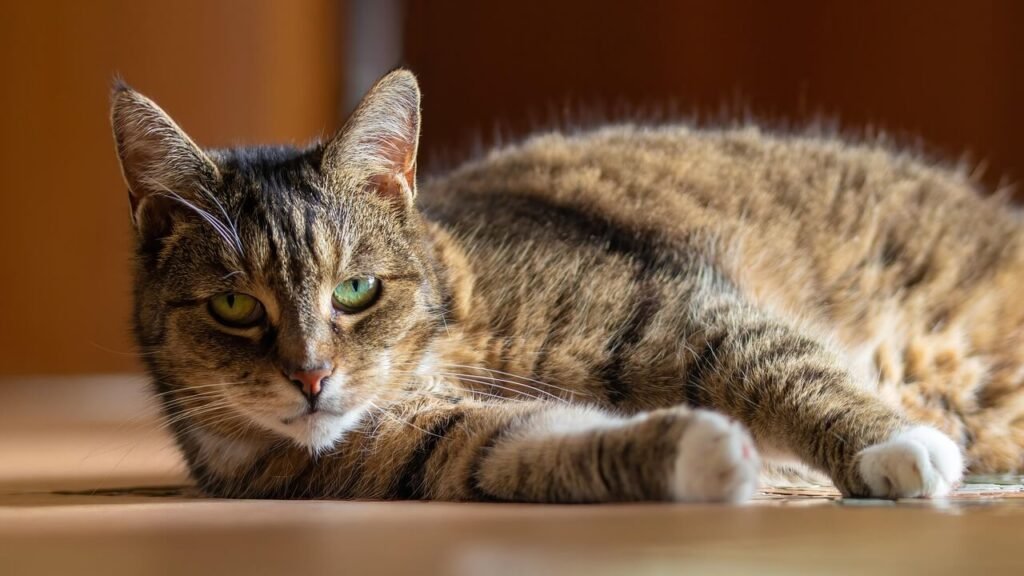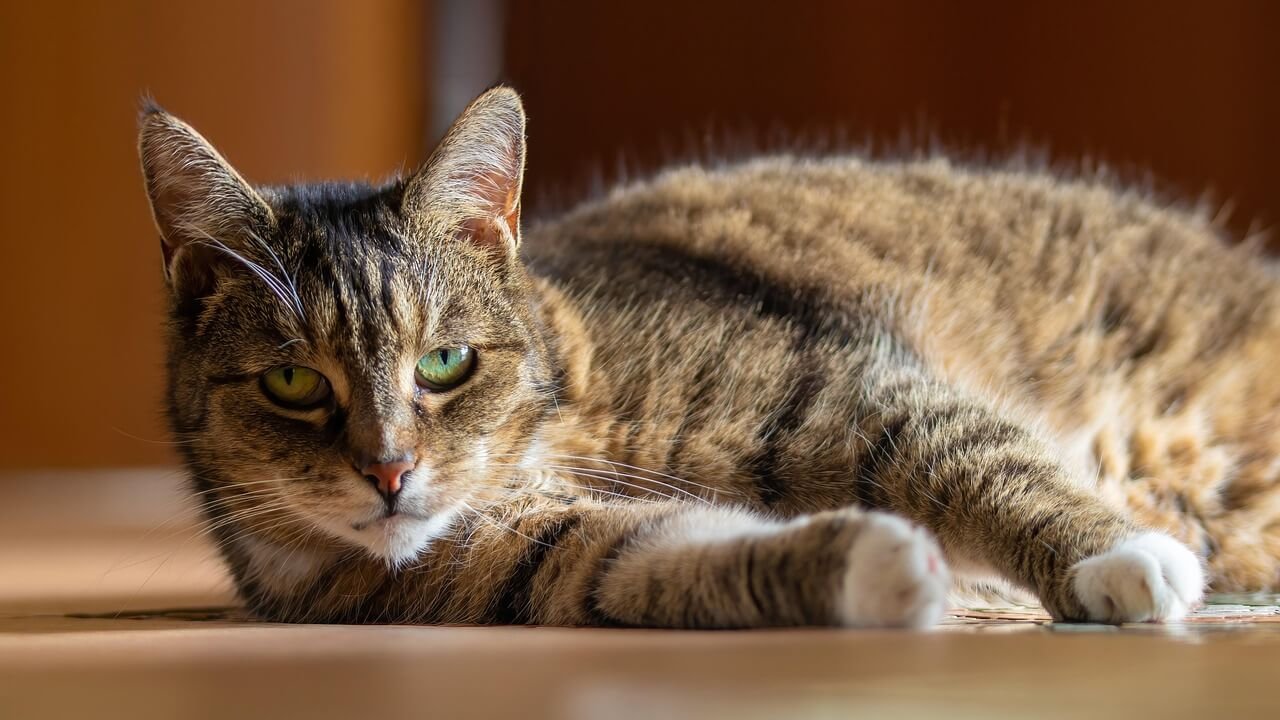Are Roses Toxic to Cats? What Every Cat Owner Should Know
Roses are a timeless symbol of beauty and romance, often adorning homes and gardens. But for cat owners, the question arises: Are roses toxic to cats? While these flowers are generally considered safe compared to other plants, there are still important considerations to keep in mind. Cats are naturally curious creatures, and their tendency to nibble on leaves or petals can lead to unexpected consequences. In this guide, we’ll explore whether roses pose a risk to your feline friend, how to identify potential dangers, and what steps you can take to ensure your pet’s safety. Let’s dive into the details to help you create a harmonious environment for both your cat and your floral arrangements.
Understanding the Risks: Are Roses Harmful to Cats?
While roses themselves are not inherently toxic, certain aspects of these flowers can still pose risks to cats. Understanding these factors is essential for keeping your pet safe.
Non-Toxic Petals and Leaves:
The petals and leaves of most rose varieties are not toxic to cats. However, ingestion can still cause mild gastrointestinal upset, such as vomiting or diarrhea.Thorns Can Be Dangerous:
Rose thorns may cause physical harm if ingested or stepped on. They can lead to mouth injuries, puncture wounds, or irritation in your cat’s digestive tract.Pesticides and Chemicals:
Many commercially sold roses are treated with pesticides or fertilizers, which can be harmful if licked or ingested by your cat. Always check for chemical residues.Artificial Additives in Bouquets:
Decorative elements like glitter, dyes, or preservatives on rose petals can irritate your cat’s skin or digestive system if consumed.Individual Sensitivities:
Some cats may have unique sensitivities or allergies to plants, even if they are not typically toxic. Monitor your cat closely for any adverse reactions.
By understanding these potential risks, you can take proactive measures to protect your cat while still enjoying the beauty of roses in your home.
Safe Alternatives to Roses for Cat Owners
If you’re concerned about the safety of roses around your feline companion, there are plenty of pet-friendly alternatives to brighten your space. Here are some suggestions:
Spider Plants:
Spider plants are non-toxic to cats and add a touch of greenery to any room. Plus, they’re easy to care for and thrive in various environments.Boston Ferns:
These lush, hanging plants are safe for cats and help purify the air. They’re an excellent choice for adding elegance to your decor.African Violets:
With their vibrant blooms, African violets are a beautiful and cat-safe option for indoor gardening. Just ensure they’re placed out of reach to prevent accidental damage.Orchids:
Most orchid varieties are non-toxic to cats and offer a sophisticated floral display. They’re perfect for adding a pop of color to your home.Cat Grass:
Cat grass, such as wheatgrass or oat grass, is specifically designed for feline consumption. It’s a fun and safe way to satisfy your cat’s chewing instincts.
Choosing pet-friendly plants ensures that your home remains both stylish and safe for your furry friend.
Check this guide 👉Are Aloe Plants Toxic to Cats? Best 7 Health Tips!
Check this guide 👉Are Dracaena Toxic to Cats? Best 7 Health Tips!
Check this guide 👉Is Salvia Toxic to Dogs? Best 7 Health Tips!

Toxic Plants to Avoid | Pet-Safe Plant Options |
|---|---|
Lilies (highly toxic to cats) | Spider Plants |
Pothos (causes irritation) | Boston Ferns |
Aloe Vera (can be harmful) | African Violets |
Daffodils (toxic if ingested) | Orchids |
Philodendrons (causes vomiting) | Cat Grass |
Signs Your Cat May Have Ingested Something Harmful
Even if roses themselves aren’t highly toxic, it’s important to recognize signs of plant ingestion or exposure to harmful substances. Early detection can prevent complications.
Vomiting or Diarrhea:
These are common symptoms of gastrointestinal upset caused by ingesting non-food items like plant material or chemicals.Excessive Drooling:
Drooling may indicate irritation in your cat’s mouth or throat, often caused by chewing on thorny or chemically treated plants.Lethargy or Weakness:
If your cat seems unusually tired or unresponsive, it could be a sign of poisoning or another health issue.Pawing at the Mouth:
This behavior may suggest discomfort or injury from ingesting sharp objects like rose thorns.Difficulty Breathing:
In severe cases, respiratory distress can occur if your cat has been exposed to toxic substances or allergens.
If you notice any of these symptoms, contact your veterinarian immediately to ensure your cat receives prompt care.
Tips for Keeping Your Cat Safe Around Flowers
Creating a pet-friendly environment doesn’t mean giving up on floral decor. With a few precautions, you can enjoy flowers while keeping your cat safe.
Place Flowers Out of Reach:
Position bouquets on high shelves or tables where your cat cannot easily access them.Remove Thorns Before Displaying:
Trim the thorns from roses to minimize the risk of injury to your curious feline.Avoid Chemical Treatments:
Opt for organic or untreated flowers to reduce the risk of pesticide exposure.Supervise Curious Cats:
Keep an eye on your cat when new flowers are introduced to ensure they don’t interact with them unsafely.Provide Cat-Friendly Distractions:
Offer toys, scratching posts, or interactive play to divert your cat’s attention away from potentially risky plants.
By following these tips, you can strike a balance between aesthetics and safety in your home.
Additional Tips for Choosing Cat-Safe Decor
When decorating your home, it’s important to strike a balance between aesthetics and safety. Here are some tips to help you create a cat-friendly environment without sacrificing style.
Opt for Non-Toxic Paints:
Use paints labeled as non-toxic or low-VOC (volatile organic compounds) to ensure your walls are safe if your cat decides to investigate.Secure Loose Decorations:
Small or fragile decorations can pose choking hazards or break if knocked over. Place them in secure areas out of your cat’s reach.Avoid String-Like Decorations:
Items like ribbons, tinsel, or garlands may entice cats but can cause intestinal blockages if ingested. Stick to sturdier decor options instead.
By prioritizing safety in your decor choices, you can design a space that’s both beautiful and secure for your feline companion.
How to Train Your Cat to Avoid Flowers
Training your cat to steer clear of flowers can be an effective way to prevent unwanted interactions. With patience and consistency, you can teach your cat to respect boundaries.
Use Positive Reinforcement:
Reward your cat with treats or praise when they stay away from floral arrangements. This encourages good behavior over time.Redirect Their Attention:
Provide engaging toys or activities near the flower display to distract your cat and redirect their curiosity.Create Physical Barriers:
Use baby gates or furniture to block access to areas where flowers are displayed, especially when you’re not home to supervise.Introduce Scents They Dislike:
Cats dislike certain scents, such as citrus or lavender. Place these smells near flowers to discourage your cat from approaching.
With these training techniques, you can minimize the chances of your cat interacting with potentially harmful plants.
Emergency Steps to Take If Your Cat Ingests a Plant
Even with precautions, accidents can happen. Knowing what to do if your cat ingests a plant is crucial for their well-being. Follow these steps to act quickly and effectively.
Identify the Plant:
Try to determine which plant your cat has ingested, as this information will help your veterinarian assess the situation.Do Not Induce Vomiting Without Guidance:
Some substances can cause more harm if vomited. Always consult a professional before taking action.Rinse Their Mouth:
If your cat has plant material or residue in their mouth, gently rinse it with water to remove any irritants.Contact Your Veterinarian Immediately:
Call your vet or an animal poison control hotline for advice tailored to your cat’s specific situation.Bring a Sample to the Vet:
If possible, take a small piece of the plant or a photo to assist with identification and treatment.
Acting swiftly and calmly in an emergency can make all the difference in ensuring your cat receives the care they need.
Frequently Asked Questions About Roses and Cats
Are all types of roses safe for cats?
Most rose varieties are not toxic, but thorns and chemical treatments can still pose risks. Always err on the side of caution.
What should I do if my cat eats a rose petal?
Monitor your cat for signs of gastrointestinal upset. If symptoms persist, consult your veterinarian.
Can rose-scented products harm my cat?
Artificial scents or essential oils used in rose-scented products can irritate cats. Use natural alternatives instead.
How can I tell if my cat has been poisoned?
Symptoms include vomiting, drooling, lethargy, or difficulty breathing. Seek veterinary care immediately if you suspect poisoning.
Are dried roses safer than fresh ones?
Dried roses may still contain thorns or chemical residues, so they should be handled with the same care as fresh flowers.
Creating a Safe and Beautiful Home for You and Your Cat
While roses are not inherently toxic to cats, they do come with certain risks that require attention. By understanding these potential hazards and taking preventive measures, you can enjoy the elegance of roses without compromising your cat’s well-being. Whether you choose to incorporate pet-safe plants or simply practice vigilance with floral arrangements, your efforts will ensure a harmonious living space for both you and your feline companion. Remember, a little care and planning go a long way in fostering a happy and healthy environment for everyone.
Do Cats Have Taste Buds? Best 7 Expert Tips! – Discover how cats experience flavors and why their taste is so unique.
Do Dogs Have Taste Buds? Best 7 Expert Tips! – Discover how dogs experience taste, their preferences, and what it means for their diet and health.
Can Cats Taste Sweet? Best 7 Expert Tips! – Discover why cats can’t taste sweetness, how it affects their diet, and tips to keep them healthy and happy.
Can Dogs Taste Sweet? Best 7 Expert Tips! – Discover how dogs perceive sweetness, which foods are safe, and tips to manage their sweet cravings responsibly.





